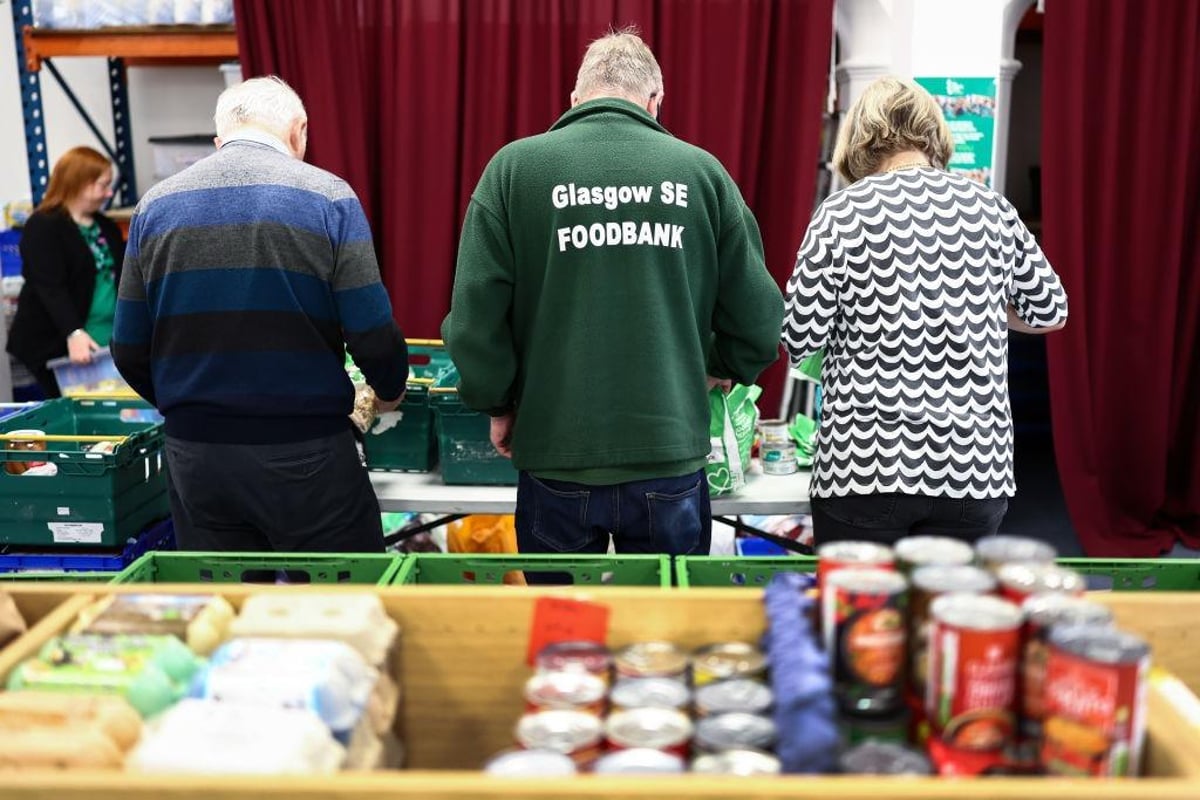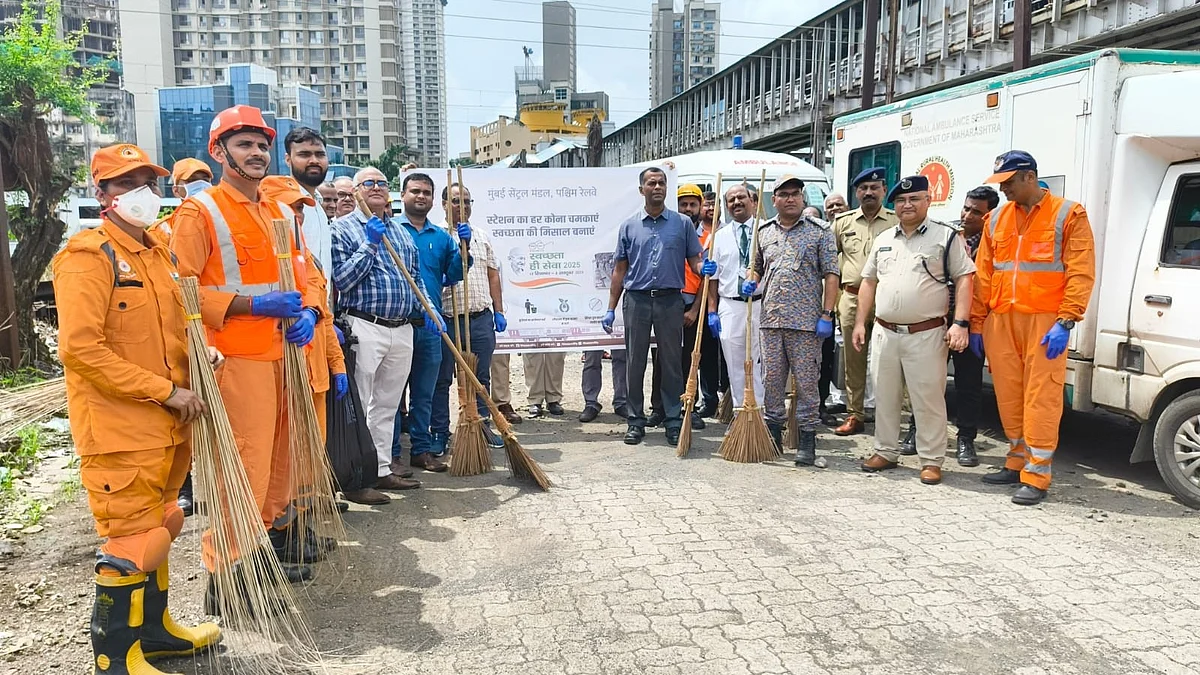By Scotsman Letters
Copyright scotsman

In their second “Hunger in the UK” report, published on Wednesday, the Trussell Trust, a leading food-bank charity, indicate 14.1 million people experienced food insecurity last year, a rise of over 2.5 million compared with 2022. Food bank usage also increased by 51 per cent over the last decade. This understates the scale of the problem as these figures do not include hundreds of independent food banks and community groups: a total embarrassment in the world’s sixth-largest economy. High and unaffordable food prices drive food poverty and insecurity. Latest figures just released by the ONS indicate that year-on-year food prices rose by 5.1 per cent, marking the fifth consecutive monthly rise and the highest in over 18 months. People are missing meals, reducing meal sizes, eating less and less well, and growing hungry. Over-reliance on cheap processed foods to the neglect of fresh food and more protein-rich diets is also on the increase: this feeds directly into the nation’s worsening health profile via enteric infections, dietary-related illness, avoidable obesity and diabetes. In this context, many contend that abolishing the two-child benefit cap is a vital and necessary step (the cost of abolishment is estimated at £2.5 billion while the reduced hunger-related costs to the NHS is £6.3bn). This argument, however, has not cut through with a cash-strapped Treasury as borrowing (and related costs) continue to soar, cost-cutting pressures increase and growth remains elusive. In the absence of concerted government action, community and civil society-based initiatives have emerged in piecemeal fashion. These include surplus food redistribution by supermarkets, community markets, food pantries and mobile greengrocers etc. Let’s forget soft power pageantry to please Donald Trump. The grown-ups in the room urgently need to engage in proper joined-up thinking and develop an overall strategy and approach that addresses this national scandal head-on. Ewen Peters, Newton Mearns, East Renfrewshire Butt out, Donald Donald Trump tells our Prime Minister to use troops to stop illegal immigration. Well Mr Trump, the people of America may accept you acting like a dictator, putting troops on the streets, but here in the UK we don’t operate like that. It is true that we have a serious problem, but I am confident this can and will be resolved. We do not need Trump interfering in our country. Neither do we need or want the kind of hatred and trouble stirred up by the likes of Elon Musk, Tommy Robinson and Nigel Farage. Let us hope that the majority of the population make sure Farage never gets the keys to No 10, knowing what that would mean for our country. Charles Sinclair, Kirkcaldy, Fife Wasted cash Security for Donald Trump’s latest State visit is estimated by Google to have been three times the cost of the last one and that was over £14 million for security, and more for entertaining. From all this, Scotland seems to have gained nothing. In fact, since Keir Starmer talked politics with Mr Trump, he has allowed him to forget about removing the tariff on whisky that had been so nearly achieved by John Swinney. Instead Starmer is boasting about gaining a promise for US AI firms to work with UK firms, a deal they were likely to do anyway. Now we have to bear increased taxes to pay for this Trump extravaganza and we have lost the benefits that removing the whisky tariff would have brought us. Mr Starmer is clearly doing his best to beggar Scotland and unless Scotland grabs Independence, he will succeed. Elizabeth Scott, Edinburgh How interesting I know how our late Queen would have dealt with the twaddle ladled out by Donald Trump in his recent state visit. A polite ear for his ramblings, followed by her famous one-word raised eye put-down of “Really? How interesting.” Malcolm Parkin, Kinnesswood, Kinross-shire Windy Seat I was in Edinburgh recently, capital of Scotland, a country whose devolved government is known globally for its absolute, groundbreaking commitment to net zero. The Parliament building where all the green policies are debated and enacted, and any windfarm, substation and pylon plans rejected by distant local councils are overturned by the “independent” Reporter, is overlooked by the majestic Arthur’s Seat, one of the windiest places in one of the highest energy-burning conurbations in Europe. I often wonder why the politicians and bureaucrats based there don’t build a giant wind farm on this world-famous landmark. What a statement it would make about their intent to wipe out the oil and gas industry – sorry, lead the world to zero carbon – and cut the cost of the hugely expensive infrastructure required to deliver the electricity to the consumers on its doorstep. The only drawback would be that the locals in Highland, Grampian and the Borders would need some other reminders of the “out of sight, out of mind” role they need to play. And I can’t see any reasons the folks in Edinburgh would object. Allan Sutherland, Stonehaven, Aberdeenshire Eurovision spirit Politics is becoming ever more entangled with sports and entertainment. The latest controversy comes as the BBC is considering its position regarding the next Eurovision Song Contest. Openly anti-Israeli governments in Ireland, Spain and the Netherlands want Israel banned or they will pull out. Holyrood, even without a real say, is in exactly this same position, as its stance on Israel is crystal clear. The BBC, no stranger to charges of antisemitism, now has to ponder its own verdict. It is in a no-win situation. This highlights the corrosive effect that has been foisted upon society by incessant marches, civil disobedience and even boycotts over an issue that really is not as clear as some would make out. Would it not be better were politics kept out of the arts and sport? Our society is being riven as never before by this issue. There is no good outcome here except by using the arts and sport as a way of bringing people together. We are doing the exact opposite. Gerald Edwards, Glasgow Problematic PFI Hugh Pennington (Letters, 19 September) is of course correct in writing that the NHS is not to blame for potholes and council-run library closures but, surprisingly, appears to be unaware of the financial consequences on Scotland’s NHS of increasing privatisation of the health service and the awarding of more PFI contracts for building neighbourhood health centres in England. Certainly Scottish councils are aware of the long-term consequences of PFI funding of new schools as they battle to meet demands on their services today. It is also surprising that some seem reluctant to accept that the NHS is struggling throughout the UK primarily because of decisions made by the UK Government, as evidenced by the many shortcomings confronting the NHS in England, which is effectively run directly by the UK Government. The fact that the NHS in Wales is apparently struggling most suggests that while the SNP Government in Scotland may be doing better than the Labour Government in Wales, limited devolution cannot cover the cracks of a broken UK Government funding regime for the NHS. Stan Grodynski, Longniddry, East Lothian Innocents betrayed Presumably the swathes of SNP and Green MSPs who voted down the proposed Inquiry into gang grooming of vulnerable girls in Scotland are feeling satisfied with their work. They have managed to separate Scotland from actions being taken in England and Wales to protect vulnerable girls like those who were harmed and at the end of the day, that division is all they want. This show of ”independence”, however, may come back to haunt them. The problem with what they have done is that they are, intentionally or not, giving a signal that Scotland is a “soft justice” country, even for the most heinous of crimes. Far more heinous, in SNP-Green eyes, would be joining the rest of the UK in trying to eradicate the scourge of the grooming gangs. Let us hope and pray no innocent must suffer for this nationalist posturing. Alexander McKay, Edinburgh Pariah state The killing of four IDF soldiers, the first since the present campaign to capture Gaza city, makes the news. Meanwhile, tucked away, is the horror story that Gazan deaths have now topped 65,000, far too many of them women and children. Apparently, Israeli lives are more valuable than Palestinians’. Belatedly, the United Nations has labelled the ongoing Gazan tragedy “genocide”, something we have all known for a very long time. At long last, the EU, playing catch-up, is seriously considering withdrawing from its trade agreement with Israel. Both Prime Minister Benjamin Netanyahu and the Tel Aviv Stock Market are shaken by this news. For the first time, Netanyahu has shown signs of panic, calling Israel the “super Sparta of the Middle East”, as always playing the victim card. Any EU boycott would hurt Israel, as it is Israel’s largest trading partner by far. Israel’s increasing isolation in the world, far less the Middle East, as a pariah state, is some much-needed good news for the Gazans and reveals, at long last, Israel’s Achilles’ heel. Ian Petrie, Edinburgh Write to The Scotsman We welcome your thoughts – NO letters submitted elsewhere, please. Write to lettersts@scotsman.com including name, address and phone number – we won’t print full details. Keep letters under 300 words, with no attachments, and avoid ‘Letters to the Editor/Readers’ Letters’ or similar in your subject line – be specific. If referring to an article, include date, page number and heading.



